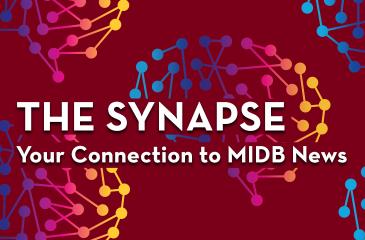The Synapse: Aug. 2021
Neuroimaging Core Advances Developmental Neuroscience Research

At MIDB’s Neuroimaging Core, we seek to better understand the neural basis of cognition, emotion, and perception, while discovering interactions between brain, behavior, and the environment that shape changes throughout typical and atypical development.
Bringing together neuroimaging and neuromodulation allows us to look inside the brain and understand individuals, individual networks and brain organization, then use that information to perform various types of stimulation to help in disorders like depression or Tourette’s syndrome. We can also develop models based on brain data to predict outcomes or even be able to classify different subpopulations and treat them differently than we would other subpopulations—instead of the more typical “one-size-fits-all” approach.
Alongside faculty and staff from the world-renowned Center for Magnetic Resonance Research, the Neuroimaging Core provides access to state-of-the-art approaches in image acquisition; experimental design; preprocessing; data analysis; and flexible data sharing. Our core fosters collaborations within departments at the University of Minnesota and across institutions to build teams with the highest possible degree of expertise.
Our dual focus on both basic and translational science is vital to advance MIDB’s mission to understand brain mechanisms in order to provide the best treatment for neurodevelopmental disorders in early childhood and adolescence.
Steven Nelson, PhD
Neuroimaging Core Director
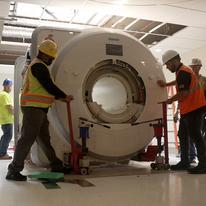
Imaging Suite Named After Longtime Professor of Radiology
A generous gift of $3 million from Marvin Goldberg, MD, will create a state-of-the-art imaging suite at MIDB enabling researchers to explore connections in the brain and advance neurodevelopmental research for the benefit of children and young adults. Dr. Goldberg was an alum of the University's Medical School and a faculty member in the Department of Radiology for nearly 30 years; he passed away in 2019. The Marvin E. Goldberg, M.D., Imaging Suite will include a 3T magnet which will be managed as part of the Center for Magnetic Resonance Research, collaboration space for MIDB researchers, an MRI simulator that will be used to help children get familiar with how it feels to be in the real scanner and to practice holding as still as possible, and comfortable space for families involved in clinical research studies to advance discoveries and lead to better patient outcomes. The goal of the space is to make the scanning environment as child-friendly as possible with the use of artwork and storytelling to make the experience feel like an adventure. Watch the video of the recent installation of the 3T magnet into the new MIDB facility.
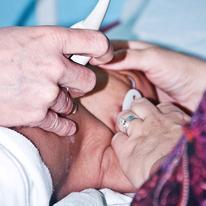
Using Ultrasound to Assess Body Composition in Premature Infants in the NICU
Early body composition changes in preterm infants are associated with later neurodevelopmental and metabolic health. Tools to measure body composition in preterm infants are emerging, but each has their own set of limitations. Fortunately, ultrasound can be performed at the patient’s bedside, with minimal movement of the patient and without exposure to radiation, allowing for more frequent measurements regardless of medical stability. A current study led by Sara Ramel, MD, will assess whether ultrasound measurements are predictive of later metabolic and neurodevelopmental outcomes in premature infants, a population at risk for developmental delay, obesity, and metabolic disease. "We hypothesize that a better understanding of these relationships will lead to the incorporation of ultrasound into routine nutritional management of preterm infants and allow for future optimization of their overall health and development," said Ramel. Learn more about this study.
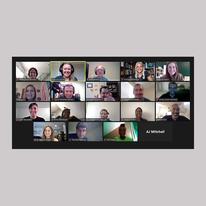
Outreach Spotlight: Developmental Cognition and Neuroimaging Lab
The Developmental Cognition and Neuroimaging Lab (DCAN Lab) housed at MIDB includes an interdisciplinary team of researchers trying to understand how the brain works across development, how brain-based disorders develop and progress, how to develop and implement creative ways to advance the treatment of mental health disorders, and how to engage underrepresented communities in academic research. At its core, the DCAN Lab emphasizes the importance of engagement and promotion of diversity. It is also a research and training hub for high schoolers, undergraduates, graduate students, post-doctoral fellows, and faculty aimed at learning about cutting edge neuroscience, refining existing neuroimaging methods, and exploring innovative and translational ways to use new technologies. Learn more about the DCAN Lab.

Statewide Social Movement to Focus on Pre-Birth to Age Three
Through its partnership with The Itasca Project's First 1,000 Days Task Force, MIDB is collaborating with Little Moments Count, a Minnesota-based statewide movement to help parents, caregivers, and the community understand the importance of talking, playing, reading, and singing with infants and toddlers for brain development. Little Moments Count is a cross-sector collaborative of organizations focused on reaching parents across cultural communities with an aim to increase equity. The Itasca Project, a cross-sector alliance of Minneapolis-St. Paul-area employers, will lead the movement’s employer-focused engagement efforts. Learn more about this project.
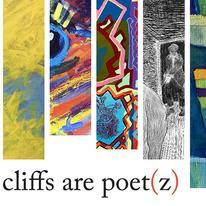
Art Opening: cliffs are poet(z)
ICI’s Art for All: The Stephanie Evelo Program for Art Inclusion's largest exhibit to date features the work of eight diverse artists with disabilities in the Northrup King Building in northeast Minneapolis. The exhibit runs Thursdays and Saturdays through Aug. 28 at 1500 Jackson St. NE, third floor gallery. The show title and theme, cliffs are poet(z), are an homage to Cliff Poetz, Art for All’s longest-serving advisory committee member and a nationally recognized disability activist who died in March. The title refers to a quote by the Scottish writer George Mackay Brown that likens the natural world to the art of poetry. Learn more about the exhibit and see related MPR Story “Art for All.”
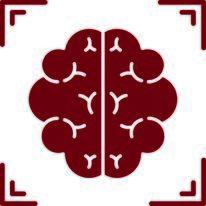
ABCD Community MRI Collection and Utilities
A team of MIDB researchers and colleagues recently published their Adolescent Brain Cognitive Development (ABCD) Community MRI Collection and Utilities study. The ABCD Study, a 10-year longitudinal neuroimaging study of the largest population based and demographically distributed cohort of 9-10 year olds, was designed to overcome reproducibility limitations of prior child mental health studies. The team says: "Besides the fantastic wealth of research opportunities, the extremely large size of the ABCD data set also creates enormous data storage, processing, and analysis challenges for researchers. To ensure data privacy and safety, researchers are not currently able to share neuroimaging data derivatives through the central repository at the National Data Archive. However, sharing derived data amongst researchers laterally can powerfully accelerate scientific progress, to ensure the maximum public benefit is derived from the ABCD study. To simultaneously promote collaboration and data safety, we developed the ABCD-BIDS Community Collection (ABCC), which includes both curated processed data and software utilities for further analyses. The ABCC also enables researchers to upload their own custom-processed versions of ABCD data and derivatives for sharing with the research community." The ABCD data and the ABCC resource is available with assistance to investigators at the University of Minnesota and their collaborators through the MIDB Informatics Group and their collaboration with the Neuroimaging and Genetic Data Resource (NGDR).

The New Frontline Initiative: DSPs Respond to Crises
The just-launched Frontline Initiative explores the myriad crises that have disrupted the lives and work of professionals who support people with disabilities. Adapting to the closure of day programs due to the pandemic and supporting people in other disaster situations has highlighted more than ever the depth and range of direct support professionals’ (DSPs) work, co-editors Julie Kramme and Chet Tschetter said. Frontline Initiative, a publication for and about DSPs, is produced through a partnership between the National Alliance for Direct Support Professionals and the Institute on Community Integration’s Research and Training Center on Community Living.
